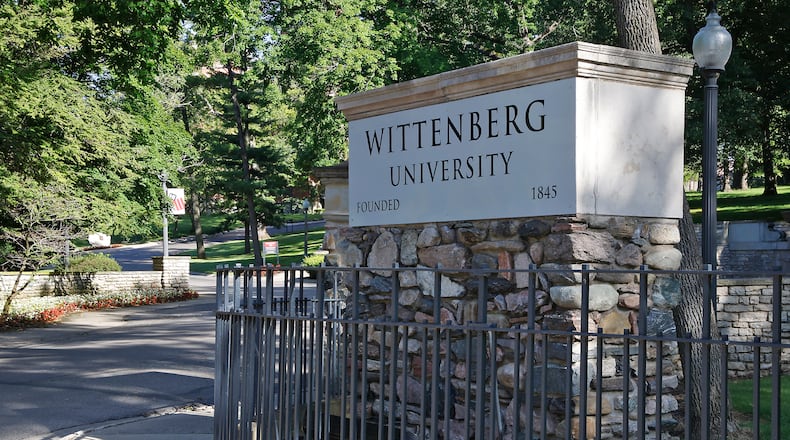Tax documents for the 2022-2023 school year show the university spent about $17 million more than it brought in, and had a deficit in tax years 2020 and 2022. In 2021, the university had a surplus of about $3.5 million.
The university said in an email to its alumni obtained by the Springfield News-Sun and Dayton Daily News the administration is working on a plan to make the university more financially stable.
According to the email, such a plan would cut projected deficits, eliminating a deficit entirely by the third year; cut staff positions at a minimum of $3 million in the current 2025 fiscal year and beyond, and eliminate “faculty lines” at $4 million in the 2026 fiscal year and beyond, “while retaining those academy programs necessary for the university to maintain and grow its current enrollment.” The university’s entire budget in tax year 2023 was about $96 million.
The university’s board will consider the new plan at its next meeting on Aug. 15.
Credit: Bill Lackey
Credit: Bill Lackey
“We believe these changes and others will make Wittenberg into a more affordable, outcomes-oriented institution while providing us with a strong financial foundation for the decades ahead — all while preserving much of what has made us exceptional in the past,” the university said in a statement.
The message to current students did not include some of the specifics that were in the message to alumni. Both messages were signed by Michael Frandsen, Wittenberg’s president, and by William D. Edwards, chairman of the board of directors.
In the board’s mid-July meeting, members directed Frandsen “to complete the Budgetary Hardship process approved earlier this year.”
That means the president will prepare a plan “that will fully eliminate forecasted losses by the 2027 fiscal year and reduce near-term losses through the expedited implementation of temporary and/or permanent costs savings,” the statement said.
According to the university, Wittenberg is considering new subject areas and academic programs, using more online and hybrid models of learning, more career pathways, and more access to academic and career expertise.
The transition would require reallocating the institution’s personnel and resources.
“As we strive to become a more affordable institution, we will also need to decrease certain expenses and eliminate faculty and staff lines over the course of the next two years to safeguard our future and better prepare students for the demographic, technological, and economic realities of today’s world,” the university said in the statement.
Karen Gerboth, a spokeswoman for the university, said more details about the plan were not immediately available. More would be available after the university board votes at the Aug. 15 meeting.
The note to students said the changes were needed for current and future students to succeed in a rapidly evolving world.
“... We must be willing to adapt, all while preserving the essence of Wittenberg: our beautiful campus, an engaged community, a rich and formative undergraduate experience, faculty-led academics and mentorship, a winning athletic tradition, and a foundation in the timeless liberal arts,” the statement said. “Consistent with our institution’s mission and character, we also must build upon this lasting foundation as we prepare our students for the world of tomorrow, not the world of yesterday.”
The message to Wittenberg alumni included a fundraising request.
Credit: Bill Lackey
Credit: Bill Lackey
About the Author



